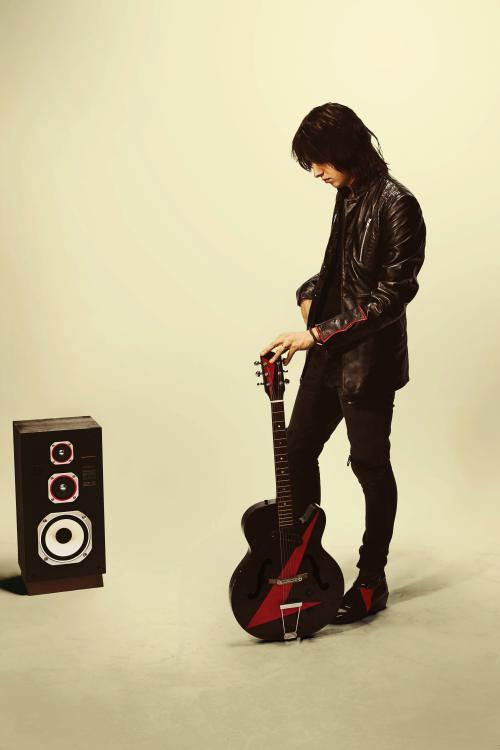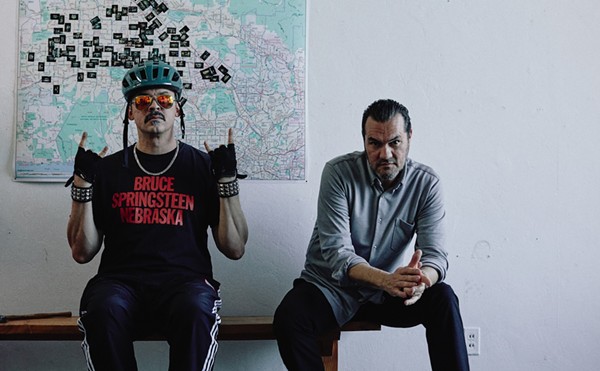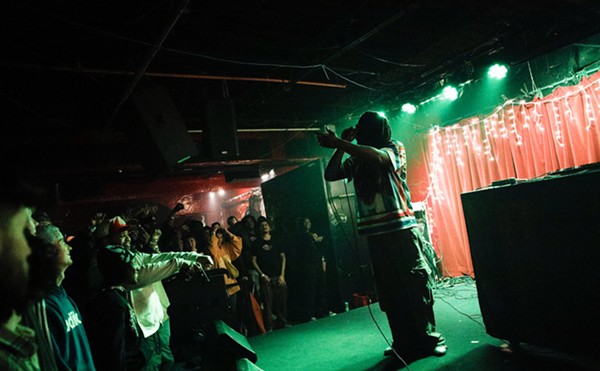
- Stroke him, stroke him
On his first solo album, last year’s Phrazes for the Young, Strokes singer Julian Casablancas continues to explore the retro-leaning and brisk indie-rock that made his band stars almost a decade ago. Casablancas sings with a bit more clarity on the synth-heavy album than he does on the Strokes’ three records. He also delves a little deeper for lyrics, hitting on themes of aging and maturity. Casablancas plays House of Blues tomorrow. He spoke to Scene about his solo album and about the Strokes. —Jeff Niesel
Are you ready to hit the road?
Yeah. I’m psyched. I’ve been busy so I feel like I’m in tour mode already. I won’t lie. I’m excited to do this tour.
How’s the solo thing going? Is it much different from touring and recording with the Strokes?
Pretty different. Onstage it’s zero different. It’s just easier sometimes with less voices, and that’s not to anyone’s detriment. Everything is easy. Everything’s been very laid back. It’s really nice. It’s easier, so it’s more fun.
Your solo album is a bit heavier with keyboards. Was that something that producer Jason Lader encouraged?
Not necessarily. I’ve always written on keyboards and guitars equally. I didn’t consciously think about it. I know it sounds synth-heavy. Sometimes there are strings, and sometimes there are piano sounds. There are laser sounds. I feel like I could have made it sound a lot more like the Strokes, but I just wanted to do something different, you know.
Your vocals are one of Phrazes’ strengths. How would you say your approach to singing has changed over the years?
I used to view the vocals as primarily an instrument like everything else. I wanted it all to blend together. Even though I wanted dense rhythmic polyrhythms, I wanted the vocals to be clear and present.
Is Phrazes intended to be a concept album of sorts? Are there consistent themes?
Well, yeah, you do a record regardless of themes. I put a theme to it a little bit. I had the title first, so everything followed. As I was writing lyrics, they had to be of a certain caliber. It has to be pretty clear. There are a bunch of different themes running through the record.
“Left & Right in the Dark” has a line about the “race against time.” Is the song about aging?
I decided I really like the name because it has so many meanings. It could be about how we’re just running around looking for meaning or about tossing and turning in bed. It could be the physical act of love. It could be the earth spinning around. It was one of many things going through my subconscious. The main thing that came out was that the songs are about things that I wish someone had told me when I was 16.
“4 Chords of the Apocalypse” almost comes off as a waltz. Was there a particular inspiration for that tune? Would you call it a break-up song?
Um, yes and no. I think me personally, I would have not wanted to go that way really. But the way it was going, many people would have wanted to go that way. I left it so ambiguous for me that I could feel it could be about break-ups or about a deeper separation between people and something.












